Truthdigger of the Week: Slain Reporter Miroslava Breach Velducea
Known for her reporting on corruption, organized crime, femicides and human rights abuses, Breach was called the “uncomfortable” journalist for writing truths that made many in power uneasy.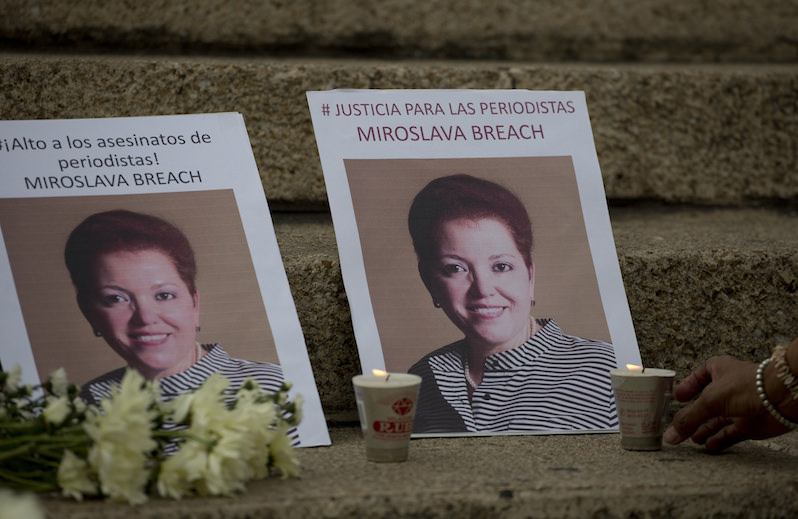
An improvised memorial for Mexican journalist Miroslava Breach Velducea during a demonstration in Mexico City on Tuesday. (Eduardo Verdugo / AP)
Every week the Truthdig editorial staff selects a Truthdigger of the Week, a group or person worthy of recognition for speaking truth to power, breaking the story or blowing the whistle. It is not a lifetime achievement award. Rather, we’re looking for newsmakers whose actions in a given week are worth celebrating.
On March 23, Miroslava Breach Velducea, 54, was killed in her car outside her house in Chihuahua, Mexico, by a gunman who shot eight bullets at her, four of which went into her head, as her child sat in the back seat of her car. The journalist, who wrote most recently for the progressive national newspaper La Jornada, as well as for a local Chihuahua journal, had spent most of her career reporting on corruption, organized crime, femicides and human rights abuses. She was known as the “uncomfortable” journalist for writing truths that made many people in power uneasy. Her grisly murder makes Breach the third journalist slain in Mexico in March alone and has raised alarms about the safety of reporters in the Latin American nation. The director general of UNESCO (the United Nations Educational, Scientific and Cultural Organization), Irina Bokova, stated Friday:
“I condemn the murder of Miroslava Breach Velducea. The use of violence to silence reporting is unacceptable. Fear and hostility are tools of those who wish to curb freedom of expression. Journalists are at the forefront of defending the universal fundamental rights that benefit society, as a whole. The perpetrator of this crime should not remain unpunished.”
Carlos Lauría, the Committee to Protect Journalists’ senior program coordinator for the Americas, said:
“We are shocked by the brutal killing of Miroslava Breach. This wave of violence threatens citizens’ right to access vital information, and harms Mexico’s democracy by limiting public debate. We urge the Mexican federal government to put an end to this violence by bringing the perpetrators of this crime to justice.”
The CPJ also reported recently that Mexico is the most dangerous country in the Western Hemisphere for journalists.
A note left on Breach’s car by the shooter allegedly read, “Por lengua larga,” which translates loosely as “For being a loud-mouth.” It was signed by “El 80,” who, according to La Jornada, is Carlos Arturo Quintana, a man considered to the leader of a group with ties to a Juarez drug cartel. Whether or not Quintana is responsible for Breach’s death, her killing is a clear example of the intimidation tactics used against journalists in Mexico, evidenced by the fact that in the week that followed her murder, two more journalists in that country were attacked by gunmen, one fatally.
Lydia Cacho, a Truthdig Global Voices contributor and friend of Breach’s, recorded a powerful message regarding her fellow journalist’s death in the following video, below which is a transcript translated into English by our staff.
My name is Lydia Cacho. I’m a Mexican journalist. Yesterday, a friend, colleague, partner, journalist, human rights expert who for decades documented femicides, human rights violations, links between politics and organized crime, was killed with eight gunshots at the gates to her home in Chihuahua. Her death has hurt us immensely.
At this moment in Chihuahua a group of colleagues, of human rights defenders, of honest public servants, are there in front of the cross of nails once again adding another name. Mexican journalists are deciding now whether or not we are going to be devastated by the death of Miroslava, another death after three so far this year. We have discussed it for a long time and we have decided that this is not going to happen. We’re crying, yes. We get tired, yes. But I, Lydia Cacho, who have been in journalism for 30 years, who was friends with Miroslava and still am, I think this is not a black and white country; this is not a country where the good and the bad are fighting. It is a country of millions and millions of men and women that are choosing every day whether we do good or not, if we make the correct, ethical decisions, or if we go the way of corruption, of the harm to others. To deny otherness, to deny the rights of others.
Journalism is a tool for society. Every time they kill a journalist, they want to keep us terrified, devastated, and yes, we have cried for hours, and we will continue to cry, surely, but just as we did not give up when we were tortured, as we have been, as have so many men and women in this country, we will not give up now.
Mexico does not deserve a corrupt government; Mexico does not deserve journalism devastated by monopolies, by lies, by corruption. Every day there are corrupt journalists and journalists who risk our lives, sometimes integrity, but also we are very, very, very proud of what we do. However small the case we cover seems, we are giving a voice to Mexican society; that is our role, that is our task. Every day there are soldiers who refuse to disappear people even when asked by their generals. Every day there are policemen who refuse to be corrupted, even when ordered by their superiors. Infiltrated in all media in this country, there are men and women who are trying to do the right thing and the task of Mexican journalists is not only to go after organized crime, to denounce narco-politics, to denounce pederast politicians, denounce all acts of devastation that are done in collusion between politicians, businessmen and people of society who choose what is wrong. Our task goes much further. It has to do with upholding the ethical fiber of this country.
Miroslava once stood outside the door of the Chihuahua government, asking extremists not to break the door. She did not do it because she wanted to protect the government. Miroslava did it because she was a journalist who was trying to figure out how to create a new journalistic narrative in which violence was not the only solution to the problems of this country. And for her, for Miroslava, for all those who have passed, we the reporters of the national network of journalists want you to know they can continue to try, they can torture us, they can persecute us, they can threaten us, but they will not silence the truth by killing journalists. [End of transcript]
Femicides have come to the forefront of human rights battles in Latin America with activist campaigns such as NiUnaMenos (Not One Less) raising awareness about the systemic misogyny that allows abuse and killings of women to oftentimes go unpunished. Breach, who reported on violence against women, an especially trying and important issue in her home state of Chihuahua where hundreds of women have disappeared, has tragically become “another,” as Cacho points out in her video, in a long line of femicides. She was silenced because of her crucial role as a journalist and for choosing to speak truth to power, even as doing so represented a huge sacrifice to her safety. Thus, for her dedication to journalism and making those who abused positions of power “uncomfortable,” and for giving a voice to the women who were silenced by violence, Miroslava Breach Velducea is our Truthdigger of the Week.
Independent journalism is under threat and overshadowed by heavily funded mainstream media.
You can help level the playing field. Become a member.
Your tax-deductible contribution keeps us digging beneath the headlines to give you thought-provoking, investigative reporting and analysis that unearths what's really happening- without compromise.
Give today to support our courageous, independent journalists.
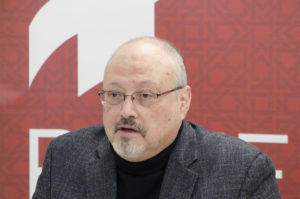
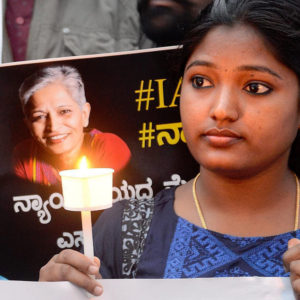
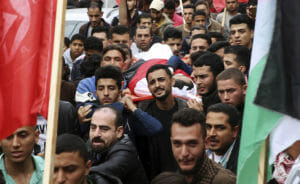
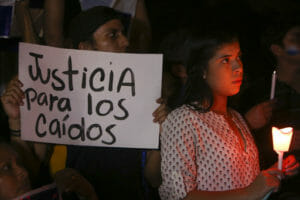
You need to be a supporter to comment.
There are currently no responses to this article.
Be the first to respond.